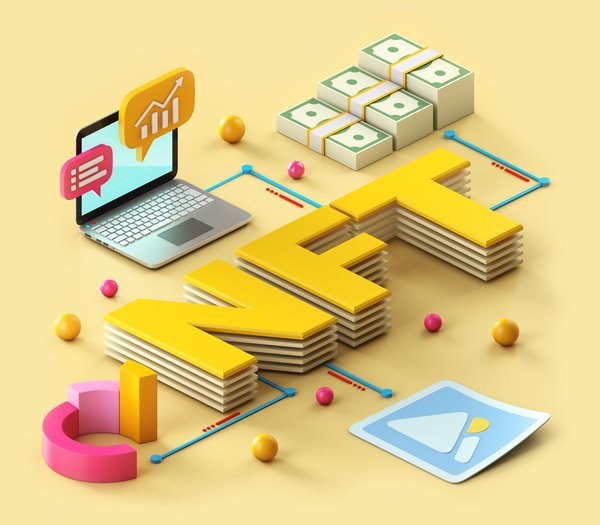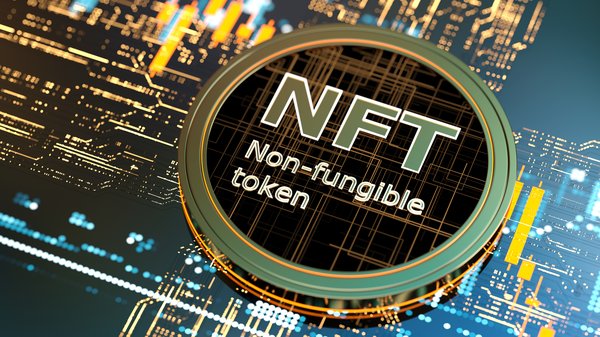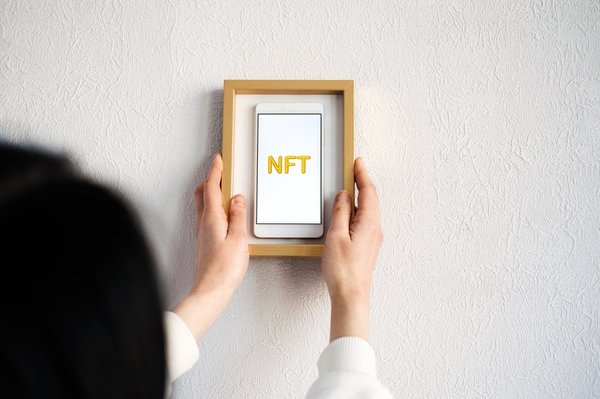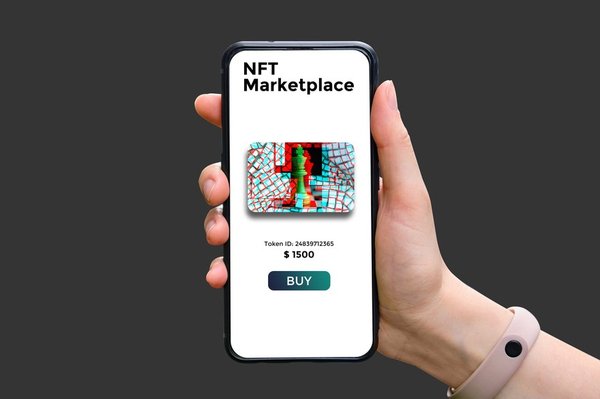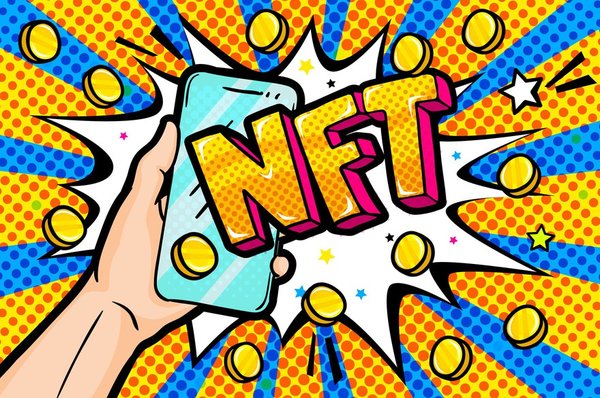Non-fungible tokens (NFTs) seem to be in the news almost every day. From record-breaking prices for NFT art to NFTs used as marketing tools for popular fast-food chains, the trend seems to be catching on. As a gimmick or collectible (sometimes both), NFTs are easy to implement and execute, but it's a much bigger challenge to apply them to slow-to-change industries such as real estate.
In the past year, experimental uses of NFTs have been popping up in the industry. Everything from building projects to lending are being tested as NFTs by various companies looking to improve processes and speed real estate transactions that can often be complicated by the many layers of document verification involved.

NFTs in the real estate industry
NFTs are nothing more than unique digital titles (tokens) to property, either real or virtual, that are stored on a blockchain ledger. Theoretically, this reduces the risk of harm due to fraud and improves the ability of an owner to prove that they do, in fact, own a thing. But, when it comes to real estate, it's a lot more complex.
There are two types of tokenization involved in real estate: entire asset (EA) and fractional ownership (FO). FO tokenization is fairly simple. It's similar to a crowdfunding platform or other similar structure that allows investors to buy shares. Each fractional owner holds a number of tokens that represents shares in the project, depending on how the investment is structured. FO tokenization is already being used in limited cases in the real estate industry.
EA tokenization, on the other hand, cannot work unless the actual property deed is turned into an NFT. This is still incredibly difficult to accomplish due to the regulatory environment surrounding real estate investments, although steps continue to be taken to move the ball down the field. Ultimately, there has to be a new asset class created for an EA token to exist for a real estate deed.
FO tokenization is much easier since corporations that hold real estate assets are readily tokenized and distributed by NFT tokens, which is a type of security just like a stock share. And, like a stock share, NFT tokens are meant to be registered with the SEC.
Digital real estate vs. physical real estate
Although it's still difficult to register individual physical homes as NFTs, digital real estate can be registered using NFTs. Digital real estate doesn't really have any regulatory rules since it exists in a virtual world that's the financially regulated equivalent of the Wild West.
Digital real estate exists in virtual spaces, often referred to as "the metaverse" or "sandbox platforms," where users can interact with and construct almost anything they want. Minecraft, for example, is a well-known platform that offers digital real estate potential. Other common platforms include Roblox (NYSE:RBLX), Decentraland (CRYPTO:MANA), Axie Infinity (CRYPTO:AXS), Upland, Cryptovoxels, and Somnium Space.
Just like real-life real estate, virtual real estate lots are designated parcels within the space designated for the platform. There's a limit on how many parcels are available, depending on the platform, and that creates scarcity in the same way that there is only so much land in the physical world. For example, Decentraland has 90,601 individual plots, each traded as a type of NFT known as LAND, and they're purchased using a cryptocurrency called MANA.
How do real estate NFTs work?
Real estate NFTs work just like any other NFT. They're purchased using a cryptocurrency of the seller's choosing, held in a digital wallet, and, if speculative, are sold again for a profit to a buyer with the right amount of money.
Investments held as FO tokens behave more like stocks in that they represent a share of a real estate project rather than a single real or virtual item. Profits are paid like any other kind of share-based investment since ownership is just a share of a business. For example, if you had one of 10 tokens of a real estate company that invests in apartment buildings, you'd be sent a check at the end of an earnings cycle that represents 10% of the net profit (unless you had a different agreement in place).
As with all NFTs and shares, you have the right to severability, meaning you can usually sell those tokens anytime you like. Some crowdfunding platforms for real estate investments require you to hold your shares for a certain period of time, and NFT-backed platforms will also likely have a minimum hold time as they become more popular.
Use of NFTs in mortgages
NFTs aren't really being widely used in mortgage products, but they may become more popular. LoanSnap, using its Bacon Protocol, has offered the first NFT mortgages in the form of home equity loans. They process loans just like regular mortgages but issue NFTs instead of simply creating mortgage notes with the liens.
So far, just a handful of NFT mortgages have been minted and are not yet available for mortgage note or crypto investors to consider for their portfolios. However, LoanSnap plans to issue a stablecoin called bHome, which will represent fractional ownership in one of the NFT mortgage notes. Investors will also make it possible for additional NFT mortgages by providing funding for future borrowers.
Advantages and disadvantages of real estate NFTs
Because real estate NFTs are so new, it's difficult to really gauge their strengths and weaknesses. There are currently a lot of experiments taking place that will help investors to better understand where NFTs can and cannot be applied within the real estate industry.
However, we do know a few things. First, real estate NFTs, like any other NFTs, promise easily traceable, secure records of ownership for a wide range of real estate investments. Second, they will allow the purchase and sale of real estate in virtual worlds, which are emerging as an investing frontier.
On the other hand, like anything in the crypto world, real estate NFTs are generally not guaranteed, and their value can go to zero with no warning. Real estate NFTs related to virtual real estate will be especially risky investments for some time. NFTs that represent fractional ownership in real world investments should be more stable.
The future of real estate NFTs
Right now, the marriage of real estate and NFTs is in such an early stage that it's hard to make predictions. NFTs, in theory, can provide easy ways to transfer ownership of shares in real estate investments or virtual real estate -- but don't expect them to be transferring whole properties anytime soon. The few whole units that have been sold using NFTs were sold as part of a package. A home sold in Ukraine, for example, was included in the sale of a business that was the actual NFT.
Current real estate laws make it very difficult to hold whole real estate properties as NFTs. As blockchain technology and other tools in the crypto toolbox prove increasingly useful for things such as creating mortgages and generating crowdfunding opportunities, it's likely they will change. Until then, look for opportunities to hold portions of mortgage debt, building projects, and other group investments as NFTs.







